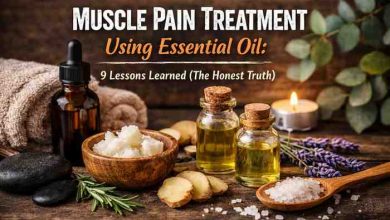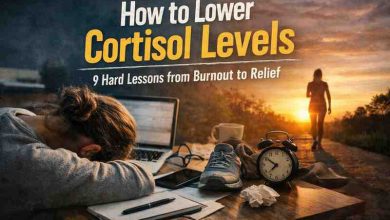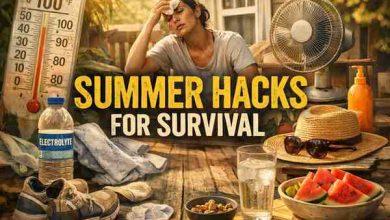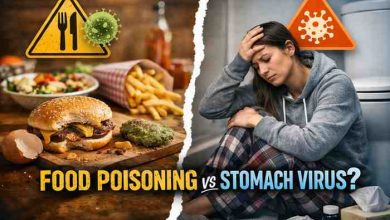
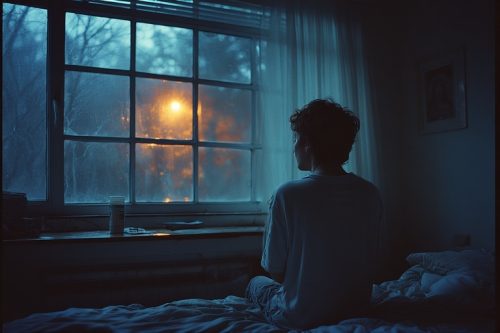
The Truth About the Cure for Chagas Disease No One Is Talking About
Imagine a silent, lifelong infection lurking in your bloodstream. It often shows no symptoms for decades, only to erupt later in life with devastating heart or digestive failure. This isn’t a plot from a medical thriller; it’s the reality for an estimated 6-7 million people worldwide living with Chagas disease. For years, the conversation around a cure for Chagas Disease has been mired in complexity, outdated information, and a startling lack of public awareness. But what if the narrative is changing? This article cuts through the noise to deliver a clear, authoritative, and data-driven look at the current state of a cure—what exists, what’s on the horizon, and what every patient and advocate needs to know.
Chagas disease, or American trypanosomiasis, is a parasitic infection caused by Trypanosoma cruzi. The quest for a definitive cure for Chagas Disease is one of the most pressing challenges in tropical medicine today. While the term “cure” can be nuanced, understanding the available therapeutic arsenal is crucial for managing the infection and preventing its catastrophic chronic complications. Let’s dive in.
What Is the Current Cure for Chagas Disease? Breaking Down Treatment Options
When patients and families search desperately for a cure for Chagas Disease, they are typically referring to antiparasitic treatment. The medical community defines “cure” in this context as the permanent elimination of the T. cruzi parasite from the body, confirmed through negative serological tests (conversion to negative) or highly sensitive PCR tests. Here’s what modern medicine offers:
First-Line Antiparasitic Drugs: Benznidazole and Nifurtimox
These two drugs are the cornerstone of treatment and the closest thing we have to a cure for acute, early congenital, and recent chronic Chagas Disease.
-
Benznidazole: Often considered the first-choice treatment. It is generally better tolerated than nifurtimox in adults and has shown high efficacy rates in recent infections, often approaching 80-90% in children.
-
Nifurtimox: An effective alternative, though side effects like gastrointestinal distress, weight loss, and neurological symptoms are common and can lead to treatment discontinuation.
The critical factor is TIMING. These drugs are most effective the sooner they are administered after infection.
“The earlier the treatment, the higher the chance of parasitological cure. In acute and congenital cases, treatment can be lifesaving and curative. In the chronic phase, the goal shifts to preventing progression and potentially eliminating the parasite.” – Consensus from the Pan American Health Organization (PAHO).
How Does the Cure for Chagas Disease Work?
The antiparasitic drugs work by generating toxic compounds inside the parasite, damaging its DNA, proteins, and energy-producing structures. Essentially, they poison the T. cruzi parasite, leading to its death. A full treatment course lasts 60-90 days and requires careful medical supervision.
The Harsh Reality: Why Finding a Cure for Chagas Disease Is So Challenging
This is the part of the story often glossed over. The search for a cure for Chagas Disease hits monumental roadblocks, which explains why it’s labeled a neglected tropical disease.
-
The Silent Progression: Most infected individuals are in the indeterminate chronic phase for 20-30 years, with no symptoms and low, intermittent parasite levels. By the time cardiac or digestive symptoms appear, significant organ damage has occurred.
-
Limited Drug Efficacy in Late Stages: The success rate of benznidazole/nifurtimox drops in established chronic disease. While it can still reduce parasite load and may slow disease progression, achieving full parasitological cure is less common.
-
Significant Side Effects: Adverse drug reactions are frequent and severe enough that many adults cannot complete the treatment regimen. This toxicity profile limits widespread use.
-
Diagnostic Gaps: It is notoriously difficult to confirm a cure in chronic patients. Parasites hide in tissues, and antibodies can persist for years even after the parasite is gone, creating uncertainty.
Is a Cure for Chagas Disease Right for You?
This is a vital discussion to have with a Chagas disease specialist. The decision depends on:
-
Your age and phase of infection (acute, chronic indeterminate, chronic determinate).
-
Pregnancy status (treatment is contraindicated during pregnancy).
-
The presence and severity of existing cardiac/digestive complications.
-
Your ability to tolerate potentially severe side effects.
Beyond Antiparasitics: The Comprehensive Management “Cure”
While waiting for a more perfect cure for Chagas Disease, comprehensive management is the current standard of care. This holistic approach treats the whole disease, not just the parasite.
Managing Chronic Complications:
-
Cardiac Care: For Chagas cardiomyopathy, this includes medications for heart failure, arrhythmia management, and even pacemakers or heart transplants in end-stage cases.
-
Digestive Care: For megacolon or megaesophagus, treatment may involve dietary changes, medications, or surgery.
The Ultimate Goal: An integrated strategy that combines antiparasitic therapy (where indicated) with meticulous management of organ-specific damage.
The Future of the Cure: Groundbreaking Research and Hope
This is where the narrative gets exciting. The scientific community is pushing boundaries to discover new pathways to a cure for Chagas Disease.
Debunking Common Chagas Disease Cure Myths
Myth 1: “There is no treatment for Chagas disease.” FALSE. Benznidazole and Nifurtimox are treatments and can be curative, especially in early stages.
Myth 2: “If you have chronic Chagas, treatment is useless.” FALSE. Studies like the BENEFIT trial showed that while benznidazole didn’t halt cardiac progression in advanced cases, it successfully suppressed parasitemia. Newer studies suggest benefits in earlier chronic stages.
Myth 3: “A new cure is coming next year.” FALSE. Drug development is slow, but several promising candidates are in the pipeline.
The Controversy Around Chagas Disease Treatment
A major debate persists: Should all chronic Chagas patients receive antiparasitic treatment? One side argues for “test and treat” to reduce the parasite reservoir and potential transmission. The other side cites the BENEFIT trial’s cardiac outcomes and drug toxicity, advocating for a more selective approach. This controversy highlights the urgent need for better, safer drugs.
A Quick Start Guide: 3 Steps If You’re Concerned About Chagas
-
Get Tested: If you have risk factors (living in or from an endemic Latin American country, mother with Chagas, possible vector exposure), seek serological testing (ELISA, IFA, etc.).
-
Consult a Specialist: If diagnosed, find an infectious disease doctor or cardiologist with experience in Chagas disease. They can accurately stage your disease and discuss the risk/benefit of antiparasitic treatment for you.
-
Commit to Lifelong Monitoring: Even if not treated antiparasitically, regular cardiac (ECG, echo) and clinical check-ups are non-negotiable to catch and manage complications early.
What’s your biggest challenge in understanding or accessing care for Chagas disease? Share your experience in the comments below—your story could help others feel less alone.
he Path Forward for a Chagas Cure
The journey to a universally effective, well-tolerated cure for Chagas Disease is ongoing. Today, “cure” is a spectrum—from parasitological eradication in early cases to the comprehensive management of chronic disease. The existing drugs, while imperfect, are critical tools. The real truth is that hope is fueled by unprecedented research into new drug combinations, biomarkers to monitor cure, and vaccines. Staying informed, advocating for greater research funding, and ensuring access to existing diagnostics and care are the most powerful steps we can take now.
